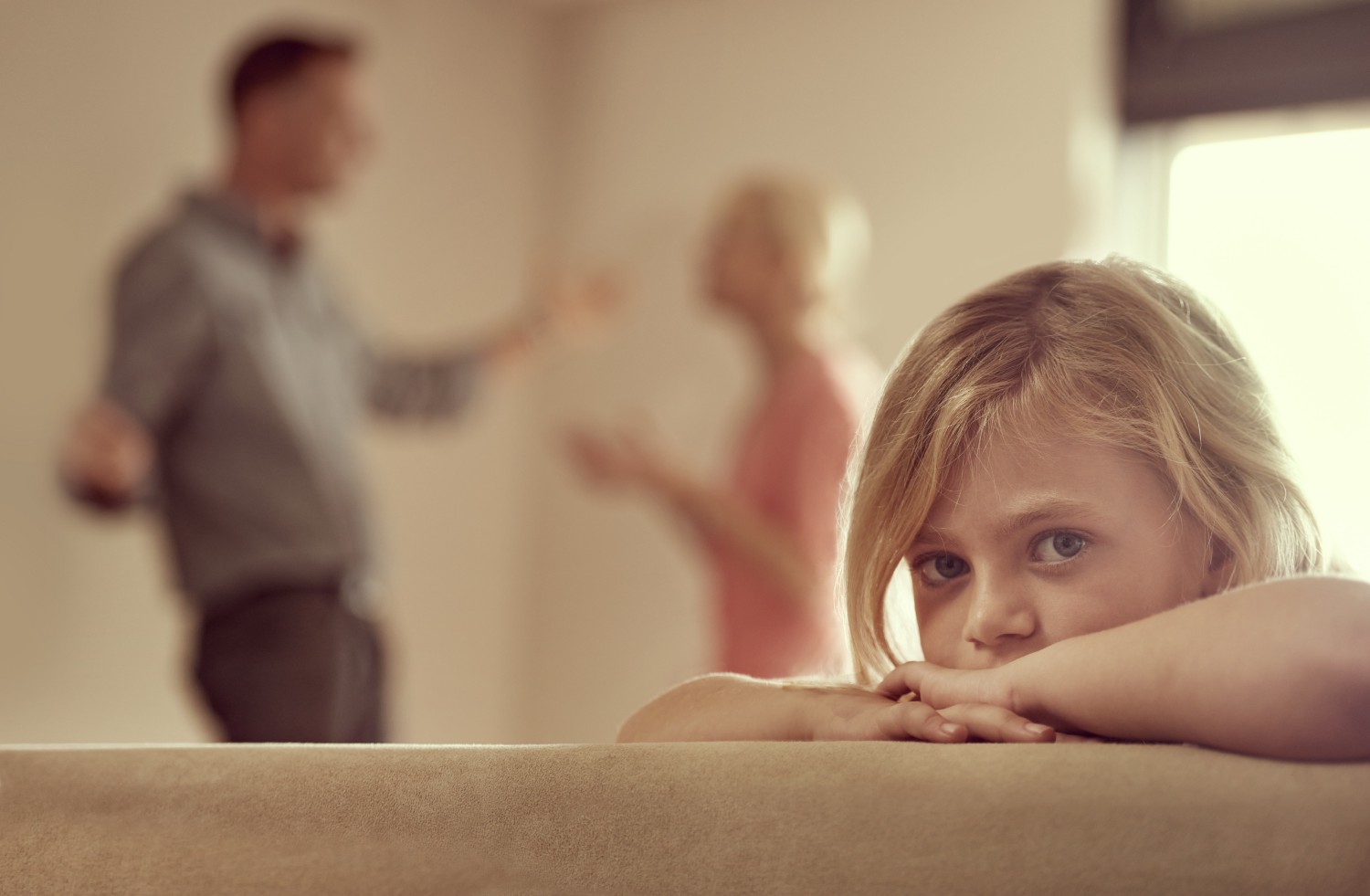Half of all children in the U.S. experience the divorce of their parents. Requests for divorce filings went up by nearly a third in January 2015, compared to every other month that year, suggesting that winter is a popular time for sparking serious change. As the dust of the new year settles, parents may benefit from advice on how to minimize the harmful effects of divorce on their children.
One thing that can help divorced parents make the process easier is to separate the roles they play. Before divorce, adults play two family roles: spouse and parent. The trick after divorce is to let go of the “husband and wife” aspects of the relationship, but keep the “mother and father” parts of it. Counselors see parents who try to let go of or keep both of these roles, and neither of these strategies is good for kids. When establishing these separate roles it is best to refrain from continued romantic and/or sexual contact after the divorce. This is especially essential around kids, as it can be extremely confusing for them. They won’t understand why Dad is still coming out of the bedroom in his robe every Sunday morning if Mom and Dad are “no longer together.”
Focusing on parental roles also means that mothers and fathers should work toward presenting a civil relationship, rather than a friendly relationship. A friendly relationship sends the message that you haven’t cut the husband and wife cord. That can encourage your children to keep the fantasy going — for decades in some cases — that mom and dad could get back together. Conversely, do not try to cope with the pain of divorce by speaking negatively about your ex-spouse to the kids. This puts your children in the unfortunate position of deciding whether to believe the nasty things Mom says about Dad or the nasty things Dad says about Mom. Don’t make them choose who to believe — children of divorce need both their mother and their father.
Similarly, do not try to recruit the children to “team Dad” or “team Mom” during divorce. It’s important to take a step back and realize that you never want kids to have a negative view of either parent. Not only can this harm them during the divorce, but it can also harm them in future relationships. Among adult children of divorced parents, only 36 percent are happily married. According to the Marriage and Religion Research Institute, children of divorced or separated parents see an 85 percent increase in behavioral problems — and the marital conflict that typically accompanies divorce can place a child’s social competence at risk.
Post-divorce, relationships with children can be fragile, leading some parents to overcompensate by spending more money than they usually do on their kids. This is what professional counselors refer to as “Disneyland Daddy.” It can occur when the non-custodial parent (75 percent of whom are fathers) feels guilty for not spending as much time with the kids as they used to. The danger of the “Disneyland Daddy” is spending more money in place of much needed quality time with kids. It is essential for parents to look at the big picture and not let guilt change existing parenting styles.
Despite the fact that the parents are no longer husband and wife, they are still a team when it comes to parenting. One of the most important elements to any successful team is the ability to keep lines of communication open. This means making sure that both parents are equally informed about the health, education, and welfare of the kids, even if they spend unequal amounts of time with the kids. All communications with an ex-spouse should occur directly with the ex-spouse. Never send messages through your children. Asking your kids to communicate on your behalf increases the chances that will eventually become caught in the middle of a disagreement.
Finally, one of the most important reminders for divorced parents is not to deal with your pain by avoiding the kids. Pain is to be expected, but dealing with it by staying away from your children after divorce can lead to feelings of abandonment. There are better ways to cope with pain. Counselors are trained to help with feelings of loneliness, and can empower clients with the skills they need to cope during this significant life change.
Some couples use a professional counselor who specializes in divorce counseling to help during this time. These counselors can assist in the transition for the family, ensure that everyone’s concerns and feelings are heard, and help to minimize pain and damage to the children. Professional counselors also serve as an unbiased third party for parents to navigate negative feelings toward each other, and to learn to cope with the loss of the marriage.
To find a counselor near you, please visit the American Counseling Association’s website at www.counseling.org.
Originally published at medium.com


